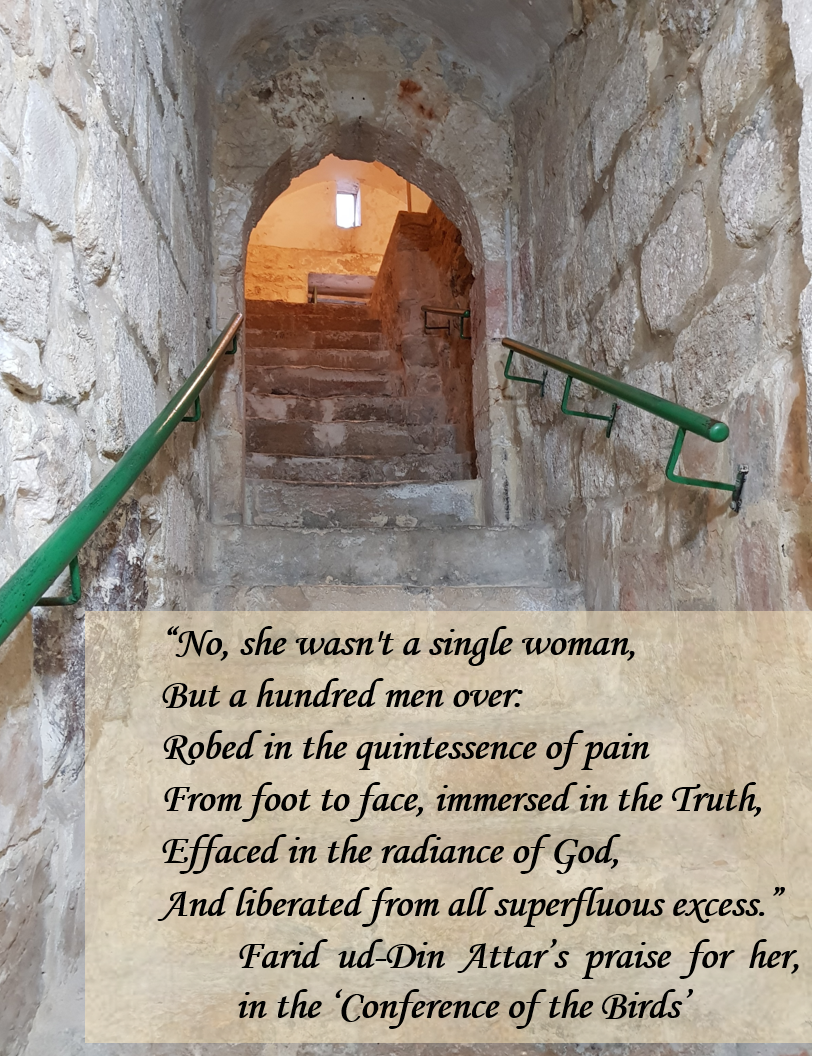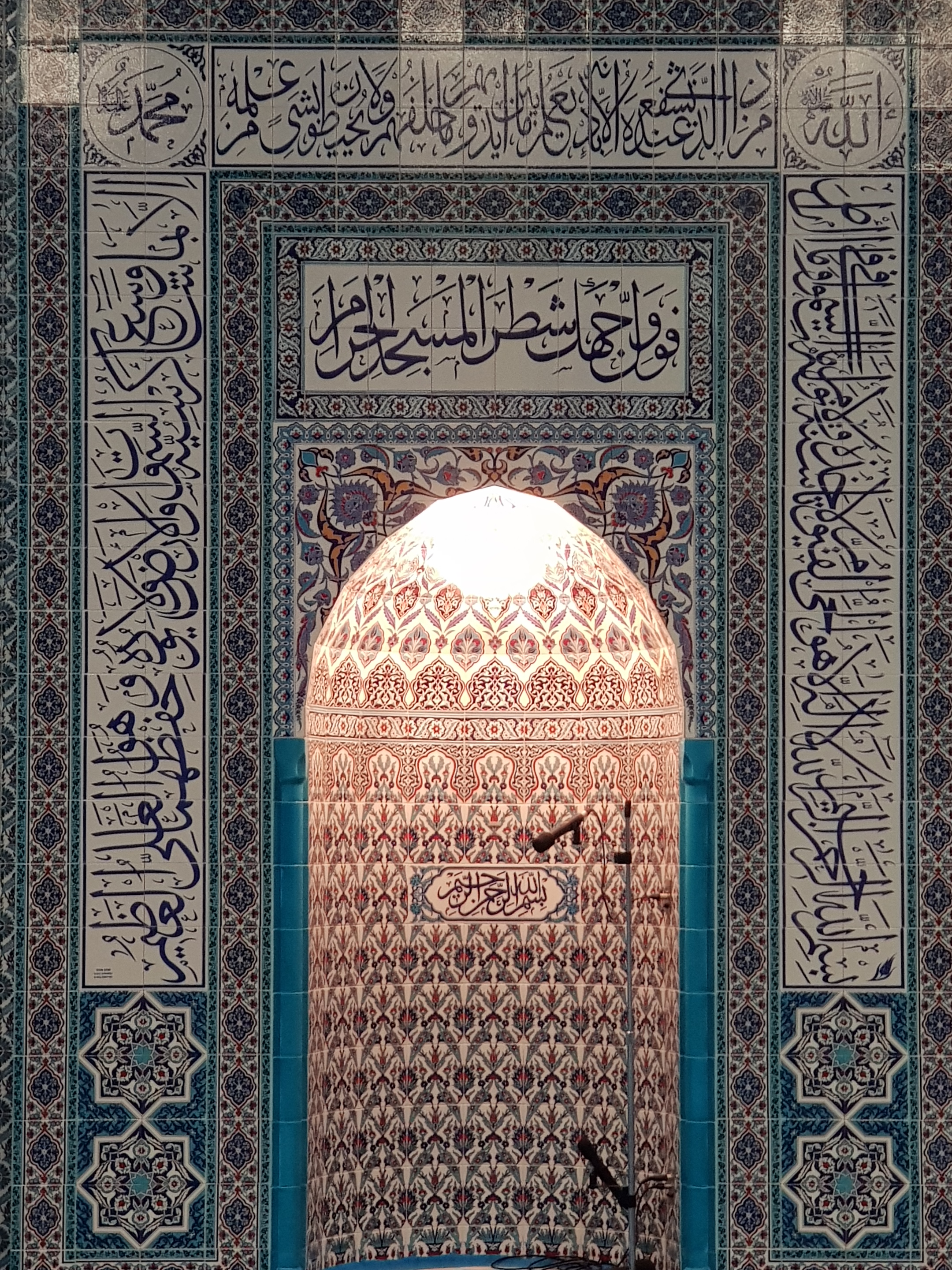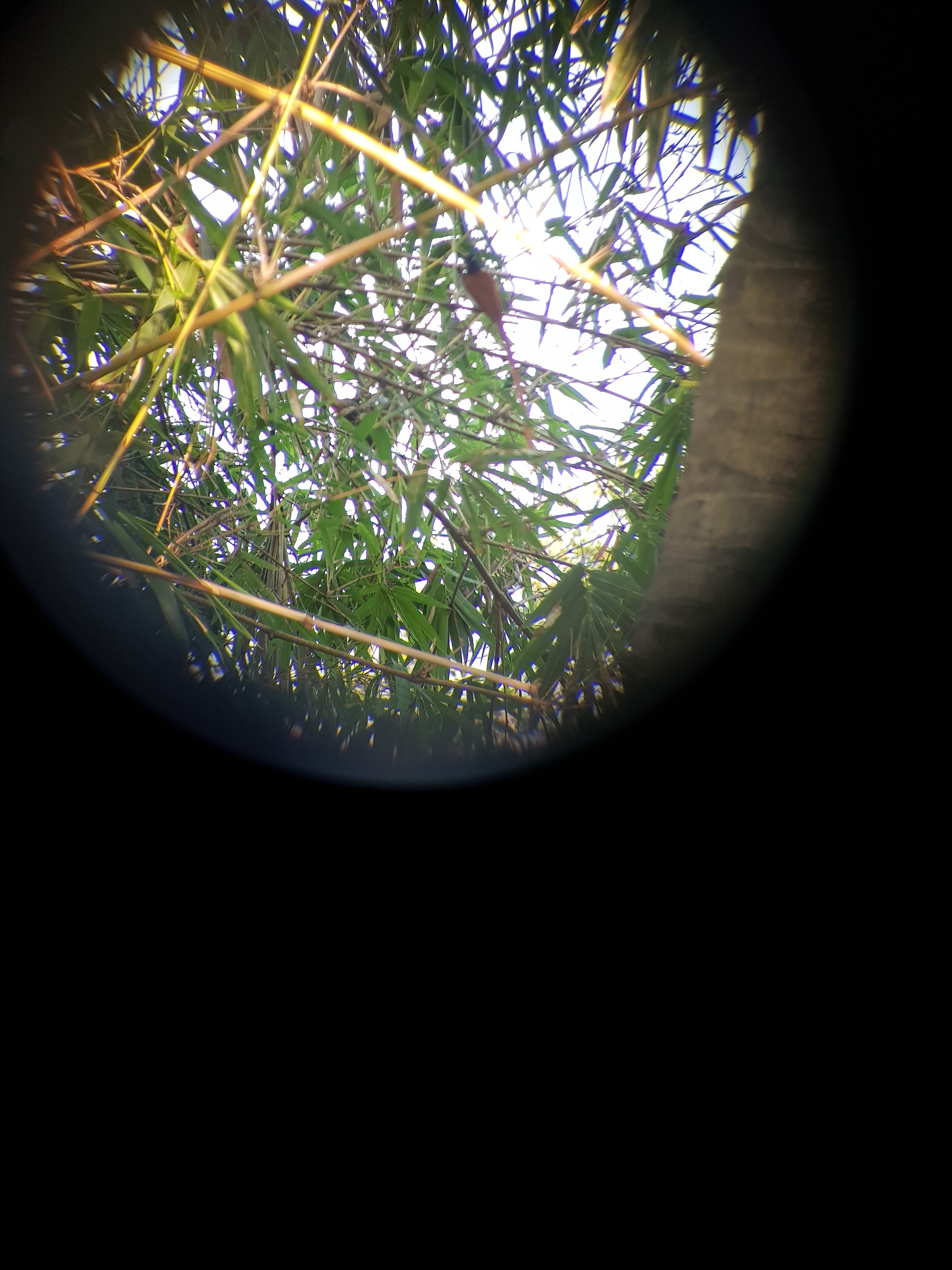
Dear Readers, peace be with you,
Hope this beautiful spring day finds you well and your families in good health. It has long been on my mind to introduce you to the immense wealth of female scholarship and role models, the Islamic tradition abounds in.
The fact that many, including many Muslims themselves, are unaware of this rich heritage is a sad testament to the dearth of sound knowledge and/or access to the same, in the modern world.
In an older post, I introduce the three foundational aspects that make up the religion of Islam; Islam (practice), Iman (belief) and Ihsan (excellence/beauty). Each of these branches has its own ‘Imams’ or great leaders, so great is their contribution to each of the domains, that all Muslims recognize them and know them to be the foremost in their sphere.
For example, every Sunni Muslim knows the four Imams of fiqh (=jurisprudence, or law), which deals with the external practices, or ‘Islam’, in this way of life. They are Ibn Hanbal, Abu Hanifa, Shafi’i and Malik, (raheemahullah alaihum, God’s mercy upon them all). I will explain more about this later God willing, but in short, they each founded a ‘school of thought’ that laid principles of law that govern the practices of Islam.
What is less well known among Sunni Muslims of today is that each of the other two branches also has ‘Imams’. For Iman (or creed/theology), they are; Imam Maturidi, and Ash’ari (God’s mercy upon both). And for Ihsan, considered the pinnacle and adornment of this religion, they include Abu Talib Al Makki, Junaid of Baghdad, and Raabia of Basra, about whom this post will be.
Raabia is a great saint of Islam. Islam too recognizes saints, but they are not the same as commonly thought of when one brings to mind saints of the Christian tradition, so more about this later God willing.
Raabia, a woman, reached such an exalted state in her ‘knowing’ of God, that she became a teacher and mentor for some of those who went on to become among the foremost scholars of our tradition, especially in the domain of Ihsan. It is from their accounts that we know what we know of her. She is unique in that she left no known written works, but her ‘name’ is recognized by almost all Muslims, a testament to the impression she made. She lived ~1200 years ago.
Rabia (Allah’s mercy upon her) lived in Basra, in present day Iraq, she would have been born in the first hundred years or so after the death of the blessed beloved (peace be upon him). An account of her life is given by Farid ud-Din Attar in ‘Thadhkirat al-Awliyaa (=Memorial of the Friends of God), the author of the famous ‘Conference of the Birds’. She was a devoted worshipper and great lover of God, so much so that stories of her piety, and ascetism, have become a part of ‘common Muslim lore’.
She was a contemporary of a number of prominent scholars of Ihsan such as; Hasan Al Basri, Sufyan ibn Sa’id ath-Thawri, Shu’ba ibn al-Hajjaj to name a few. These great scholars are reported to have sought her advice on legal matters as well as on spiritual matters. Some accounts of these encounters are collected by the 11th century famous Sufi scholar ‘as-Sulami’ in his ‘Dhikr an-Niswa al-Muta’ Abbidat as Sufiyyat’ (translated recently as ‘Early Sufi Women’ by Rkia Cornell, Fons Vitae publishers), some of which I reproduce here;
“Sufyan ath-Thawri said about Rabia’, “take me to the mentor. For when I am apart from her, I can find no solace”, when he entered her abode, Sufyan raised his hand and said, “O God, grant me safety!” At this, Rabi’a wept. “What makes you weep?” he asked. “You caused me to weep,” she replied. “How?” he asked. She answered, “Have you not learned that true safety from the world is to abandon all that is in it? So how can you ask such a thing while you are still soiled with the world?”. In another account it was reported by Shayban al-Ubulli who said ‘I heard Rabi’a say: “For everything there is a fruit, and the fruit of the knowledge of God is in orienting oneself toward God at all times”. Also on his authority it is related Rabi’a said “I ask God’s forgiveness for my lack of truthfulness in saying, ‘I ask God’s forgiveness.’” In another narration, it is recorded that a scholar said in her presence “He who persists in knocking at the door will have it opened for him”. “the door is already open,” she replied. “But the question is: who wishes to enter it?””
She attained the highest state a practitioner of Islam aspires to, to become an ‘a’rif’ or ‘one who knows God’, a gnostic. Though strict with herself and a great renouncer of the world (thus embodying a basic Islamic ethos, that one is firm on oneself, but compassionate and magnanimous with others…a concept many Muslims seem to like to apply in the opposite direction these days – that is, being firm in judging others but lax with themselves!), her greatest contributions to Islam, is her teaching of the concept of ‘Divine love’.
This was a time when Muslims were overcome with extreme awe of God, it is said, to the extent, some of the early Sufis were scared to lift a finger lest God disproves, she showed that God’s love is to be sought for the sake of God himself, rather than to worship Him out of fear of punishment or desire for reward.
It is important to recount the time early in our history when men and women learned and taught one another – Hasan Al-Basri famously stated ‘I once spent a whole day and a night in Rabi’a’s company and never once did it cross my mind that she was a woman and I was a man’ – and it is related Rabi’a said – ‘once Hasan Al Basri visited me and so enraptured were we in talking about God that I forgot what I was cooking and it burned to a crisp’ – may these times come back to us.
Indeed, it is vital we reacquaint ourselves with such immense gnostics and teachers in our faith, especially those who are women, who taught us the all important practice of Ihsan, without which Islam can become an empty shell.
Giants such as Rabia’, so long left in the margin of scholarly enterprise, but so important for us to know today. And may God grant us a strong love for them so we follow in their footsteps, thus bridging our ‘islam’ and ‘iman’ to come to ‘ihsan’, and thereby taste the fullness and joy of what it means to be a Muslim.
Farid ud-Din Attar’s praise for her:
“No, she wasn’t a single woman, But a hundred men over: Robed in the quintessence of pain, From foot to face, immersed in the Truth, Effaced in the radiance of God, And liberated from all superfluous excess.”
- In the ‘Conference of the Birds’
“That noble recluse who dwelled behind the cloisters of God’s elect, a matron of sanctity beneath sincerity’s veil, on fire with love, totally consumed with yearning, arduously enraptured by God’s proximity, that apostle of Mary’s purity, acknowledged by all men was Rabia al-Adawiya, God’s mercy rest upon her.”
- In the ‘Memoirs of the Saints’
Two poems from Rabia (Allah’s mercy upon her)
In love, nothing exists between heart and heart.
Speech is born out of longing,
True description from the real taste.
The one who tastes, knows;
the one who explains, lies.
How can you describe the true form of Something
In whose presence you are blotted out?
And in whose being you still exist?
And who lives as a sign for your journey?
~~
I have two ways of loving You:
A selfish one
And another way that is worthy of You.
In my selfish love, I remember You and You alone.
In that other love, You lift the veil
And let me feast my eyes on Your Living Face.
~~
May God ennoble her face, shower His light upon her grave and grant her the highest station in paradise, and may we be blessed to drink from her light and learn from her wisdom.
She is reported to have lived her last days in Jerusalem, and while the exact site is disputed, there is some evidence she was buried on the Mount of Olives. The site is just adjacent to where the chapel of the ascension is, isn’t that a beautiful sign.
I had the great honour to visit her resting site and pay my respects. It has been in the trust of a Palestinian family for centuries, whose door one knocks on to request the key to visit the tomb. A young member of the family accompanied me and indeed what a gladness to see a modern day teenager carrying on the family duty. Captions on the photos below will explain more God willing.
Peace be with you all

How it looks from the street, the family needs to open the gate

The courtyard of the little mosque right next to the chapel of the ascension. The door to the family’s home (who guard her tomb) is here

Inside the little mosque

On the wall of the old mosque. An ancient and beautiful prayer

The entrance

Once inside one descends

looking up from the tomb

The tomb is located here, a little alcove for prayer and seclusion

How it looks from the street, the family needs to open the gate

The courtyard of the little mosque right next to the chapel of the ascension. The door to the family’s home (who guard her tomb) is here

Inside the little mosque

On the wall of the old mosque. An ancient and beautiful prayer





















